Opponents Assail I-94 Expansion at Public Hearing
Anti-expansion coalition pushes 'Fix at Six' rather than eight-lane I-94 expansion.
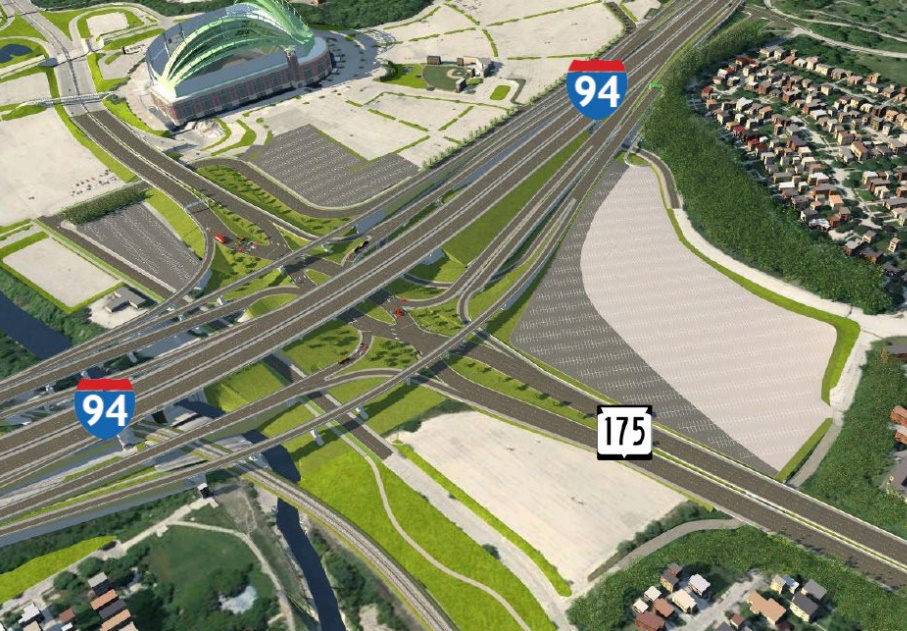
Diverging diamond design for Stadium Interchange. Image from I-94 Supplemental Environmental Impact Statement.
The Wisconsin Department of Transportation held the first of two newly added public hearings Monday afternoon on the proposed expansion of Interstate 94.
The $1.2 billion proposal calls for expanding the interstate between 16th and 70th streets and rebuilding the Stadium Interchange with a new design. The project would add a fourth lane to both directions of the freeway as part of the 3.5-mile reconstruction, making it eight lanes as it is on other sections.
The project has faced fairly widespread criticism in the Milwaukee area, which has a long history of interstate projects that have cleaved communities in two, contributed to racial segregation in the metro area and destroyed neighborhoods. A group organizing against the expansion proposal is called the Coalition for More Responsible Transportation (CMRT).
The coalition does not oppose rebuilding the interstate, but the plan to expand the freeway. The group and many others in the community continue to advocate for a “Fix at Six” proposal that advocates claim has never been fully reviewed by WisDOT.
The Fix at Six proposal was developed by Mark Stout, a transportation planner who formerly worked with the New Jersey Department of Transportation. The proposal, which is different from WisDOT’s own six-lane study, would freeze the highway at its current six lanes and see the state make major investments in public transit and multi-modal infrastructure in the corridor.
Milwaukee Riverkeeper Cheryl Nenn, a member of the coalition, said the freeway expansion would add more than 40 acres of concrete to the corridor, worsening stormwater runoff and pollution in the Menomonee River and other nearby streams. The stormwater would also increase the water running into the combined sewers during a large rain event.
“Even at its current size, the stadium interchange and highway are sending too much pollution into local rivers and highway expansion will exacerbate this problem,” said Nenn.
WisDOT officials maintain that their modeling suggests the eight-lane roadway will reduce traffic congestion, be safer and allow for easier construction of modern updates to the freeway design. “We have studied and designed a six-lane alternative,” said Brian Bliesner, WisDOT project development chief, but noted that a six-lane option “that improves safety and stays in the footprint does not exist and is not feasible.”
Burgelis is the author of a resolution that, if passed, would make it the official position of Milwaukee County government to oppose the freeway expansion and support a proposal like Fix at Six.
The coalition includes members, like MICAH and Midwest Environmental Advocates (MWA), that sued WisDOT and the state in the aftermath of the Zoo Interchange project, arguing that the environmental review was inadequate and the project violated federal anti-discrimination laws. The case was settled when the state agreed to provide $13.5 million for public transit in Milwaukee County.
The groups sued because the project prioritized “primarily white suburban commuters and left primarily Black inner-city residents with dwindling public transportation options,” said Tony Wilkin Gibart, MWA Executive Director.
“We’re seeing a transportation decision that is exactly the same mindset as a decade ago, a decade ago, a decade ago,” Gibart said. “It’s disheartening that we don’t have a 21st-century transportation option being presented here today.”
WisDOT is holding another public hearing on Dec. 14, from 4-7 p.m. at Marquette University High School, 3401 W. Wisconsin Ave.
More about the I-94 East-West Expansion
- Transportation: Fix At Six Coalition Sues State, Federal Government Over I-94 Expansion - Graham Kilmer - Aug 20th, 2024
- WisDOT to host I-94 East-West Freeway Project public meetings - Wisconsin Department of Transportation - Jun 12th, 2024
- Open Houses Announced For I-94 Widening - Jeramey Jannene - Jun 6th, 2024
- ‘Fix at Six’ Group Wants I-94 Expansion Delayed For Civil Rights Report - Jeramey Jannene - Mar 20th, 2024
- Coalition Admonishes I-94 expansion Record of Decision - Sierra Club - Mar 20th, 2024
- Feds Approve Interstate 94 Expansion - Jeramey Jannene - Mar 8th, 2024
- Advocates condemn approval of I-94 expansion - Sierra Club - Mar 8th, 2024
- I-94 East-West Project Receives Federal Approval - Wisconsin Department of Transportation - Mar 8th, 2024
- Federal Government Investigating Civil Rights Complaint About I-94 Expansion - Evan Casey - Jan 11th, 2024
- Op Ed: 8-Lane I-94 Expansion Is Worst for Carbon Emissions - Cassie Steiner, Cheryl Nenn and Terry Wiggins - Dec 18th, 2023
Read more about I-94 East-West Expansion here
Political Contributions Tracker
Displaying political contributions between people mentioned in this story. Learn more.
MKE County
-
Flights Grounded as Thousands of RNC Attendees Try to Leave Milwaukee
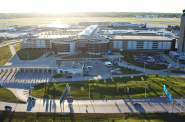 Jul 19th, 2024 by Graham Kilmer
Jul 19th, 2024 by Graham Kilmer
-
J.D. Vance Plays Up Working Class Roots, Populist Politics in RNC Speech
 Jul 17th, 2024 by Graham Kilmer
Jul 17th, 2024 by Graham Kilmer
-
Ron Johnson Says Free-Market Principles Could Fix Education
 Jul 17th, 2024 by Graham Kilmer
Jul 17th, 2024 by Graham Kilmer
Transportation
-
MCTS Adds 28 New Buses
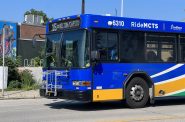 Jul 13th, 2024 by Graham Kilmer
Jul 13th, 2024 by Graham Kilmer
-
MCTS Designing New Bus Shelters
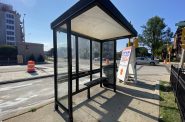 Jul 10th, 2024 by Graham Kilmer
Jul 10th, 2024 by Graham Kilmer
-
MCTS Updates RNC Bus Detours To Better Serve Downtown, Riders
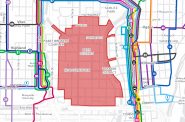 Jul 9th, 2024 by Jeramey Jannene
Jul 9th, 2024 by Jeramey Jannene





















